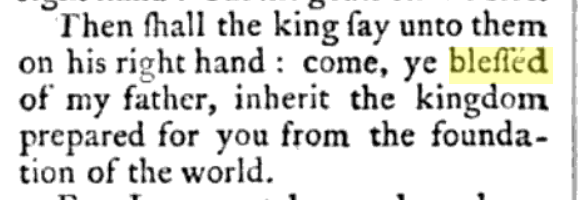The distinction between the words blessèd (/ˈblɛsəd/) and blessed (/blɛst/) (see Grammarbook) appears to be wearing thin in modern language, possibly due to reduced accent usage and its resultant lack of different pronunciation between the two terms.
Wiktionary refers to the word as
poetic, dated
And most damningly of all as an
Alternative form of blessed (verb)
While I understand that little usage of terms such as blessèd and cursèd cause them to get blurred with their verb counterparts, some adjectives like naked, talented, sacred are still used, always written without the accent. In some legal and political circles†, learnèd is still used for specific traditional purposes but it is now starting to fade.
The reason some of these words are pronounced with /əd/ is explained by the answers to this question: "Why pronunciation of “Crooked” is “Crook-ked”?"
David G said:
If the normal form of the word (crook, twist) ends in t or d, the -ed is enunciated (such as wanted or bedded).
This explains the pronunciation of talented, but not that of naked, sacred, or blessed. The pronunciation of naked is however explained by coleopterist's answer to this question: Where does “wicked” get its /ɪd/ from?
According to A Critical Pronouncing Dictionary and Expositor of the English Language, 1839,
The adjectives naked, wicked, picked (pointed), booked, crooked, forked, tusked, tressed, and wretched, are not derived from verbs, and are therefore pronounced in two syllables. The same may be observed of scabbed, crabbed, chubbed, stubbed, shagged, snagged, ragged, scrubbed, dogged, rugged, scragged, hawked, jagged; to which we may add, the solemn pronunciation of stiff-necked; and these when formed into nouns with the addition of ness, preserved the ed in a distinct syllable, as wickedness, scabbedness, raggedness, &c.
What is the history behind writing these words with accents?
With this explanation out of the way, what I'd like to know is whether it was common, in the past, to write these words with grave accents, and in which contexts people did this.
An answer to a question of mine (Are -èd adjectives still usèd words?) explains that:
[Shakespeare] was somewhat inconsistent. But he never used an accent, and he generally used belov'd for the two-syllable pronunciation and beloved for the three-syllable pronunciation.
Was it ever common for people to add accents to or ommit the 'e' (as in belov'd) from their writing to show this pronunciation?
†Interestingly, Hansard don't include accents at all, even when one looks back into the 18th and 19th century records. This may, however, be a result of typewriting and modernising of the records.
Note: Bits of this question have been copied from this question because, looking back on that, it is rather broad and it would be better to split the question up.




